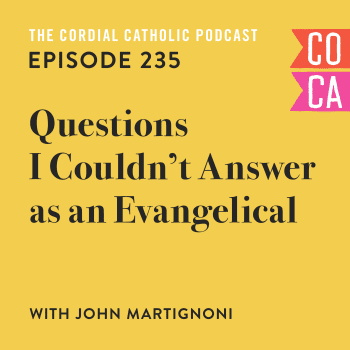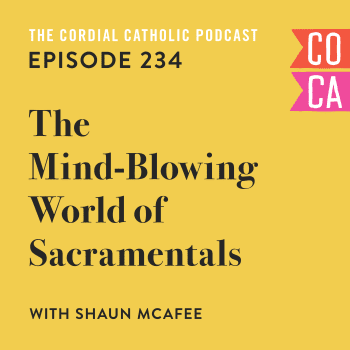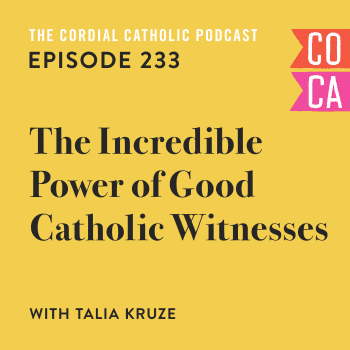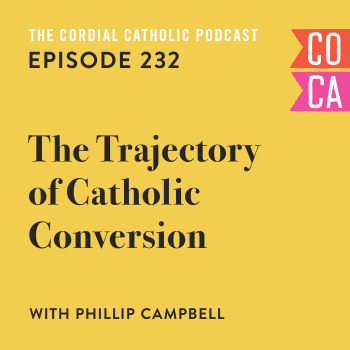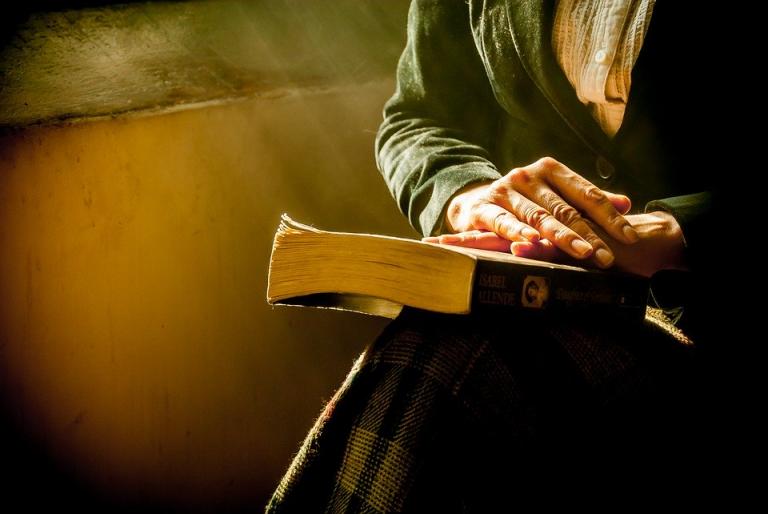
For those that don’t know the story of my conversion to the Catholic faith it centres, like many similar stories, around the issue of authority.
This week I had the privilege of sitting down and talking to yet another convert who had a conversion experience similar to mine. Sonja Corbitt was a Southern Baptist, through and through. She loved her Scriptures—in fact, she led a popular Bible study group at the Baptist church where she and her husband served in leadership.
But it was on that fateful question of authority that, like me, she began to see cracks in the watertight evangelical worldview.
For me, it began when questions around same-sex attraction and marriage and gender identity were brought up in our mid-sized non-denominational evangelical church. As a community, these issues weren’t fully fleshed out or thought through and when it came time to debate, discuss, and actually engage with them I began to realize how challenging answering these questions would be.
As an evangelical—a Christian from the Protestant tradition—we were taught that the Bible was the final arbiter of faith. In the case of same-sex marriage and gender questions, however, it seemed like evangelical theologians could come down in a variety of positions. Although, in my opinion, the Bible seemed fairly straightforward in its understanding of what marriage was, good friends within the same church community and many of the leaders mustered up good, biblical arguments to the contrary.
I was left with the distinct impression that if the Bible was the sole rule for my faith it was ultimately unworkable because, as I found out, the Bible needs an interpreter.
Both sides in this particular argument—on the nature of marriage—had good biblical arguments.
But this wasn’t the only issue, I came to realize, where the Bible can be used to support opposing sides of an argument. On questions of how we’re saved, who goes to Heaven, why Jesus had to die, what is the nature of God, and even, ironically, what the Bible is, can be debated at length based on quotations, evidence, and an examination of the Bible.
On its own, I realized, the Bible did not work, because we can all read the Bible and come to different conclusions—even if we read really closely and pray very hard this still seems to be the case.
For her part, Sonja agrees.
“I knew other people to be holier than I was,” she says, “and we disagreed on very important interpretations.”
Her conclusion: that the Holy Spirit can’t be confused. That there must be a right answer, but how can we find it?
After experiencing not one but two splits from the same church Sonja realized that something had gone terribly wrong with the Church that Christ intended to found. After all, the Christians she knew were reading their Bibles, were praying, and were coming to different conclusions on important topics. Conclusions which couldn’t be reconciled. Conclusions which split apart churches.
But Sonja’s perspective was clear. “What I knew,” she says, “is that division is demonic. Disunity is demonic.”
Christ intended the Church to be one, so what happened?
Sonja decided to investigate the life and writings of the first person she knew to take a stand against the Church, Martin Luther, the father of the Protestant Reformation—a reform which ultimately spawned the thousands of different Protestant denominations which exist today.
The Protestant Reformation, she realized as she poured over the writings of the Reformers, was not the reform she thought it was.
As she dug into the roots of the Reformation, in Martin Luther’s own words, she realized that what happened wasn’t an attempt to fix the Church from the inside but ultimately a definitive split, a break, from the singular authority of the Church that had been past down since the beginning.
In other words, Luther was, arguably, the first to split a church, to separate Christians from the authority that had been past down since Christ and the apostles. And the result was devastating.
I became a Catholic. Sonja did too and her story is an incredible one.
In large part, many converts just like us became Catholic for very similar reasons: the ultimate place of authority. Because while the Bible remains central, foundational, to how Catholics understand our faith, we also have the authority of the Bishops, who trace their lineage right back to the very first apostles appointed by Christ. These Bishops, in mercy and charity, exercise the power given by Christ to “bind and loose,” a rabbinical term used by Jesus to indicate the authority he was giving his apostles to teach, instruct, and guide. An authority which the apostles passed on through the laying of hands, and their successors passed on, and so did their successors, and so on right down until today.
Of course, we are not unique. As evangelical churches continue to split over questions of who can interpret what and who holds the ultimate authority the Catholic Church remains, like a lighthouse beacon, that city on the hill. A faith that offers unity that many of us craved and an authority, that ancient interpreter, which makes sense of the Scriptures. Converts like Sonja and myself and countless others have found refuge here; and, hey, it’s certainly big enough for us all.
To listen to Sonja’s incredible story click here, or listen below.


